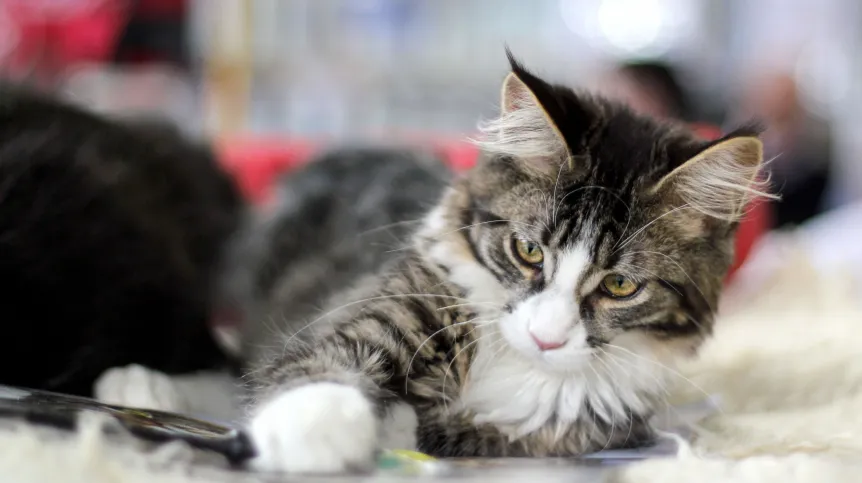
Researchers at the Jagiellonian University in Kraków have developed a drug for cat flu - considered one of the common causes of death of cats in shelters and catteries.
According to the scientists, field studies conducted on sick animals showed improvement in many of them.
The product, soon to be available on the market, will help treat cats with viral upper respiratory tract infection. The disease caused by Feline herpesvirus type 1 (FHV-1) and feline calicivirus (FCV) is very common and its most frequent symptoms include cough, sneezing, nasal congestion, reddened eyes, fever, and nasal/facial ulcerations.
'This makes cat flu one of the most common causes of feline deaths in animal shelters and catteries. Even though the disease is well known, and its viral etiological factors have already been thoroughly studied, the treatment is symptomatic and mostly based on antibiotic therapy aimed at preventing secondary bacterial infections. At the moment, no drug directly targeting FCV is used in veterinary medicine', the university’s press release said.
In 2021, the Jagiellonian University signed a licence agreement with Acatavir for the development of a product to be used in veterinary medicine, in cat flu treatment and prevention. Actavir was founded by the Jagiellonian University scientists: Aleksandra Synowiec and Professor Krzysztof Pyrć (Małopolska Centre of Biotechnology) as well as Professor Maria Nowakowska and Professor Krzysztof Szczubiałka (the Faculty of Chemistry). Their research resulted in the identification of a compound that is approved for use even in human patients - a sulfonated derivative of polystyrene, which is able to effectively combat both viruses responsible for cat flu.
Professor Krzysztof Pyrć said that, together with a Kraków veterinary clinic, the researchers carried out field research on 26 cats suffering from acute and chronic cat flu, which indicated improvement in the condition of a large proportion of the animals, 'involving the reduction of both the viral load and the symptoms of the disease. It should be noted that no adverse effects have been observed. Our technology will now be developed by Vet Planet company, and we hope that it will soon be put to commercial use', he said. (PAP).
juka/ agt/ kap/
tr. RL













